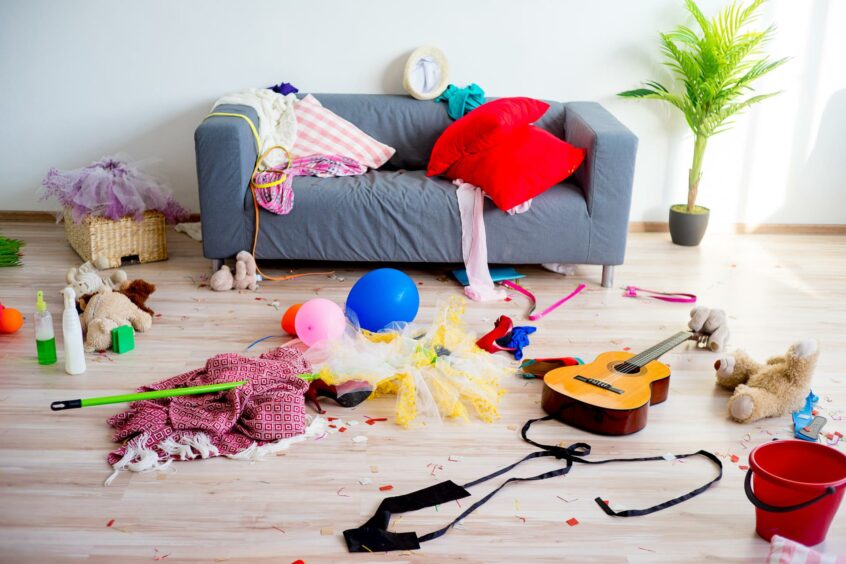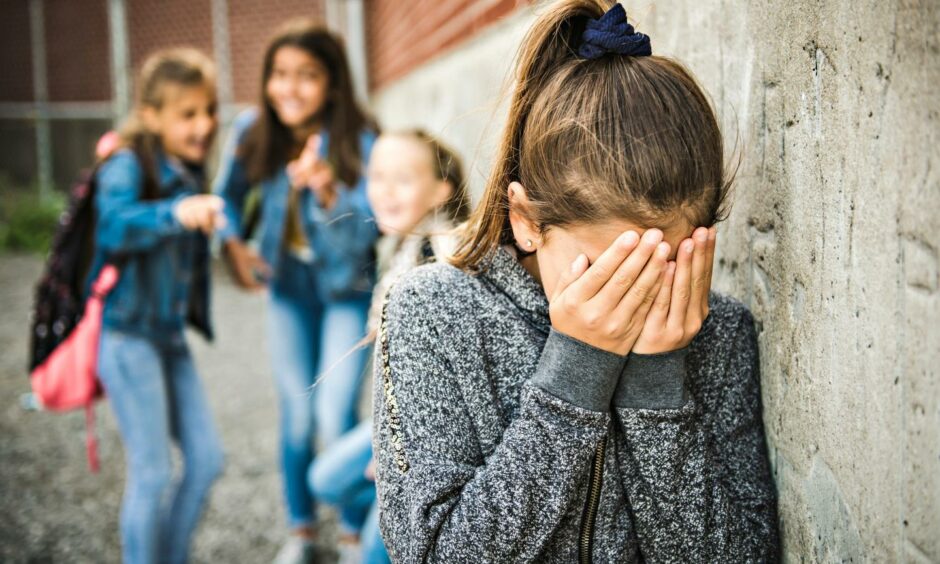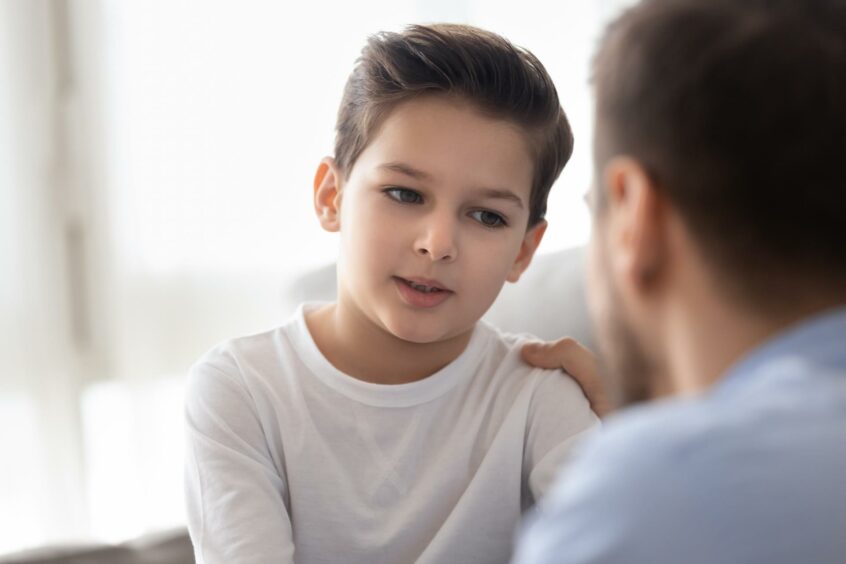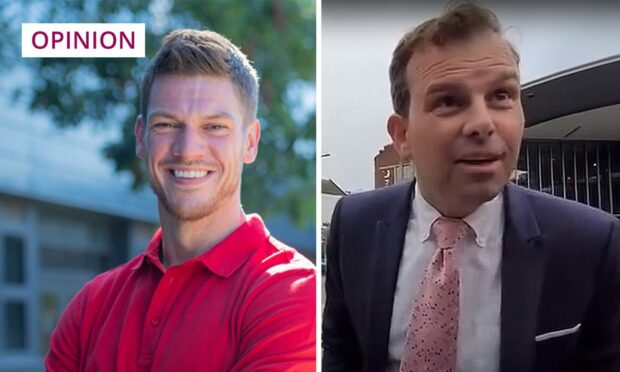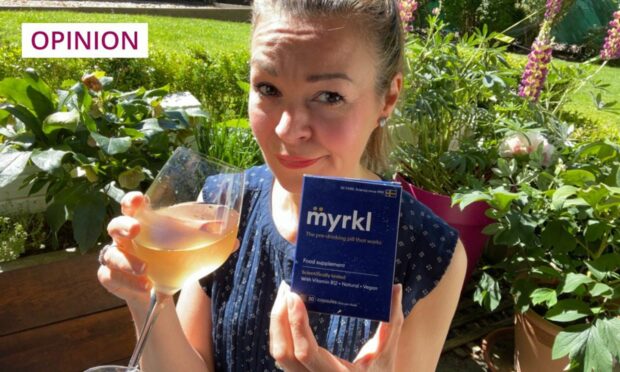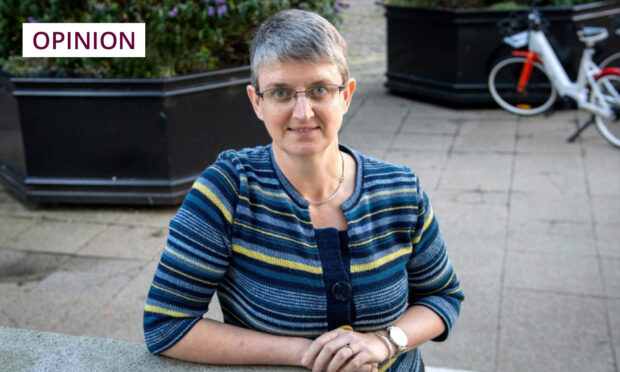In the every day of parenting, amid all the clearing up and chasing around after children, it’s easy to lose sight of the bigger picture.
Lifts need to be organised and fitted in around work, dinners have to be made, uniforms sorted, missing games kits found.
And that’s not to mention the management of emotions and fallouts with friends and siblings.
Your patience gets frayed sometimes, and then frayed some more.
And all the time there’s a little voice in your head telling you – you’re not doing a very good job.
It’s the same little voice that reminds you other parents seem much more relaxed about this stuff.
They take things in their stride. They organise things better. What if they just are better?
I’ve learned family life is best run through routine.
It means our days tend to blend and pass quickly as we move from one scheduled activity to the next.
We navigate a familiar obstacle course every day, but it’s a challenging one nonetheless.
And now I suddenly find I’m preparing for my eldest to leave home.
What does successful parenting look like?
Old routines are being replaced with the unpredictability of life with older teens, who increasingly do their own thing.
I find I do have time to ponder the bigger questions now.
Like – have I done a good job as a parent? What does successful parenting look like? And what is the most desired outcome for our kids?
For me, it’s to raise a generally happy young adult, who has a sense of direction – however vague that might seem.
One who feels positive about the future.
A young adult who, although they may not feel entirely confident – and who does frankly? – has enough self belief to be able to go after what they want.
Self belief is a tricky thing though.
It’s not always something that can be taught.
And it’s not always down to parenting.
Bullying and being different – difficult obstacles to overcome
There’s a saying – how we speak to our children becomes their inner voice.
It’s something I’ve tried to remember. But sometimes life gets in the way.
And sometimes some children have it harder than others, for reasons that are outwith your control.
Children who are bullied are far more likely to experience poorer self esteem, which will undoubtedly affect their self belief.
The Courier’s schools team did a brilliant series on bullying recently, which shared heartbreaking stories of local children and young people who have been left traumatised and broken by their experiences of being singled out for torment.
And then there are the considerable challenges facing those who feel different.
It might be due to ethnic, gender, social, physical or neuro diversity reasons.
For some children it might be all of those things.
But how hard must it be to live through that with your sense of self-belief intact?
What about a child who carries the burden of a learning difficulty through school, and who must watch others thrive academically while they struggle along year after year?
What about the child who can’t join in certain activities due to physical disability, or a lack of money, or religious beliefs?
Growing up in the shadow of self doubt
Being different is something we celebrate later in life.
But while many kids are brilliantly accepting these days and diversity is less of a burden, being different is not an easy thing for a child to grapple with.
It can cast a shadow of self doubt.
It’s tough for parents to cut through in those situations.
I know because I’m right there with one of mine.
I tell him all the time that I believe in him.
That I believe he’ll find something he loves. Something he will be brilliant at.
He looks suspiciously at me and I want to take my belief in him and transplant it into his heart.
But it’s not that easy.
Hope begins at home
Sometimes the reality is that our belief and our love and our encouragement are not enough.
But that shouldn’t dissuade us from trying.
Because a child who has self belief is a person who is set for life.
And if they see that we believe in them, that has to count for something.
It’s equally true that children feed off our own feelings of self worth.
Do we believe in ourselves? Or are we telling them one thing and then demonstrating our own self doubt through what we say and do?
A sense of hope and expectation starts in the home.
If the level of expectation you’re surrounded by doesn’t amount to much, it’s far harder to find it on your own.
So I’m trying my best to sow the seed of self belief as a parent in the hope that it will grow and flourish within my sons.


